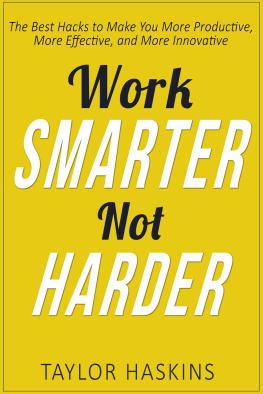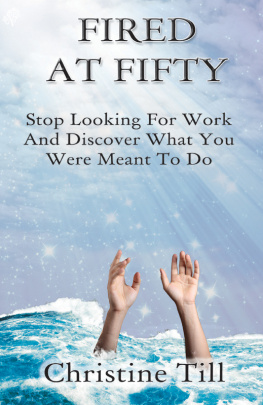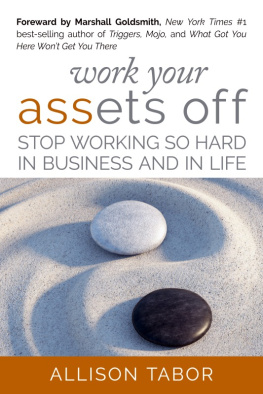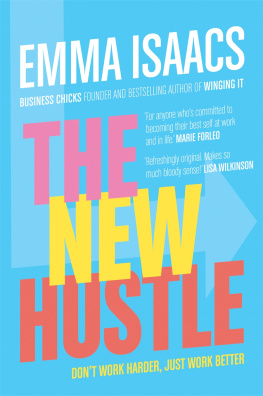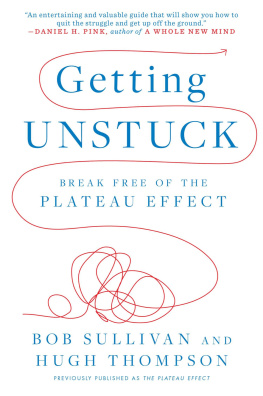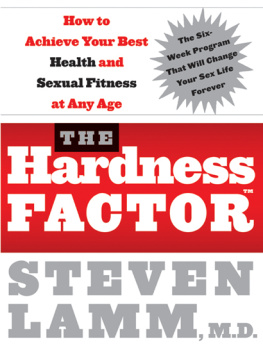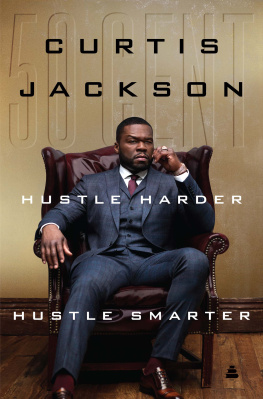ABOUT THE AUTHOR
Avrum Geurin Weiss is a therapist, author, and teacher who has been interested in the process of change in people and organizations for over thirty years. He is the director of the Pine River Psychotherapy Training Institute and holds an adjunct faculty position in the Department of Psychology at Georgia State University. Avrum is the proud father of two grown children.
Connect with Avrum on Facebook (facebook.com/changehappens1) and follow him on Twitter (@changehappens1)
ACKNOWLEDGMENTS
I would like to thank:
My closest friend, Robert Carrere, Ph.D., and my sister, Rachel Weiss, both extraordinary authors in their own right, who never faltered in their belief in this project.
Gayanne, for her patience and support through the many highs and lows.
Debbara Dingman, Ph.D., my fabulous cotherapist who helped me to formulate many of the ideas for this book and put up with me through so many years of rejections and heartache.
Roni Cohen-Sandler, Ph.D., who generously took me under her wing and guided me through all of the vicissitudes of bringing this project to fruition.
Loretta Barrett, who read countless early versions of this book and spent many hours trying to help me organize these complex ideas into a marketable product.
Andy Ross, my fabulous agent who never stopped believing in this project.
Linda Bryant, cofounder of Charis Books in Atlanta who helped me realize I wanted to write this book for a general audience.
Harville Hendrix, Ph.D., an early reader and supporter.
Lyn Somer, Ph.D., one of my first readers who gave me the gift of telling me how these ideas helped her change her life, and then introduced me to a long string of friends and colleagues who all gave so generously of their time and support.
My colleagues in my AAP family group who have loved me and supported me more than I could have ever imagined, and helped me get over my fear of success: Fern Beu, Ph.D., Damon Blank, M.Ed, Frances Compton, Ph.D., Debbara Dingman, Ph.D., Marc Feldman, Ph.D., Gary Frankel, Ph.D., Doris Jackson, Ph.D., Laurie Michaels, Ph.D., Robert Rosenblatt, Ph.D., Reginald Schoonover, Ph.D., Lyn Somer, Ph.D., and Kathryn Van der Heiden, MS.
My partners in practice at Pine River Psychotherapy Associates who have encouraged me to be my best self as a person and as a psychotherapist: Nancy Cooley, Ph.D., Robert Coyle, Ph.D., Debbara Dingman, Ph.D., Ruth Hepler, Ph.D., Marlyne Israelian, Ph.D., Bernhard Kempler, Ph.D., Luis McLeod, Ph.D., Ndiya Nkongho, Ph.D., Bruce Pemberton, Ed.D., Judy Pemberton, Ph.D., and Mark Timberlake, Ph.D.

TWO WAYS TO CHANGE
The opposite of a fact is falsehood, but the opposite of one profound truth may very well be another profound truth.
Niels Bohr1
You want to change something about your life. It may be a relatively small and straightforward change; perhaps you would like to spend a little more time with your family, get to the gym more consistently, or be more productive at work. Or you may be considering a larger change. Perhaps you feel lonely and want to expand your network of friends or deepen the intimacy you share with loved ones. Maybe you have not quite lived up to some of your own hopes and expectations and you want to find the courage to live more of the life you secretly dream of: quit the job you have never liked and pursue the work you love or leave a loveless marriage and face your own fears of being alone. It may even be that your life feels out of control in some ways, and you swing wildly back and forth between a resigned sense of detachment and a rising feeling of urgency whenever you allow yourself to think about where your life is headed. You want to make this change in your life and you are committed to doing whatever it takes to be successful.
WHAT KIND OF CHANGE?
When I was young and free and my imagination had no limits, I dreamed of changing the world. As I grew older and wiser, I discovered the world would not change, so I shortened my sights somewhat and decided to change only my country.
But it, too, seemed immovable.
As I grew into my twilight years, in one last desperate attempt, I settled for changing only my family, those closest to me, but alas, they would have none of it.
And now as I lie on my deathbed, I suddenly realize: If I had only changed my self first, then by example I would have changed my family.
From their inspiration and encouragement, I would then have been able to better my country and, who knows, I may have even changed the world.
From the tomb of an Anglican bishop in the crypts of Westminster Abbey
We can think about two kinds of change: external and internal change. External change is the kind of change that you and everyone around you can see. External change is reassuring because you can see it and sometimes even measure it, and even if you do not recognize that change in yourself, other people can see it and point it out to you. Internal change involves shifts in your subjective experience: changes in the way you feel, think, and perceive that may or may not be visible to others. Internal change can be more subtle and difficult for you and those around you to notice.
In this culture, we tend to focus more on external change. In a national survey that asked what people would change to make their lives happier, thirty-three percent said they would change their financial situation and fourteen percent said they would change their job. Nine percent of people said they would change where they live, five percent said their appearance, five percent their family, five percent would change their romantic situation, and four percent said they would change their health. Notice that the first two priorities are both about money, and external changes account for over sixty percent of the change that people want to create in their lives, whereas internal change accounted for less than fifteen percent of what people wanted to change (C. W. Brown, personal communication, 2008).
However, if you listen closely to people when they talk about the external change they want to create in their lives you will often hear the internal change that goes along with it. When people talk about wanting to be more assertive, you may also hear them talking about learning to feel stronger internally, less intimidated and less easily knocked off center. When people talk about wanting to live within their means or eat more healthily, you may also hear them talk about wanting to learn how to be more self-loving, or feel less internally out of control. When people talk about wanting to find a life partner, if you listen carefully, you may hear them talk about wanting to feel less internally alone.
In Change Happens, we are going to talk about both external and internal change, about changes in both your subjective experience and the ways in which you act in the world and the relationship between the two.
DO PEOPLE REALLY CHANGE?
The one unchangeable certainty is that nothing is certain or unchangeable.
John Fitzgerald Kennedy2
The question is often asked whether we ever change who we truly are, or just learn how to adapt to different circumstances. It is a critically important question because if change is nothing more then adaptation, then you cannot count on it in yourself or in others. If my partner changes her behavior only because I stopped talking to her, I am not very confident that change will endure when I start being nice to her again. On the other hand, if my partner has truly changed because something has shifted inside her and she recognizes how her behavior was affecting me, then I might be able to relax into this change.



